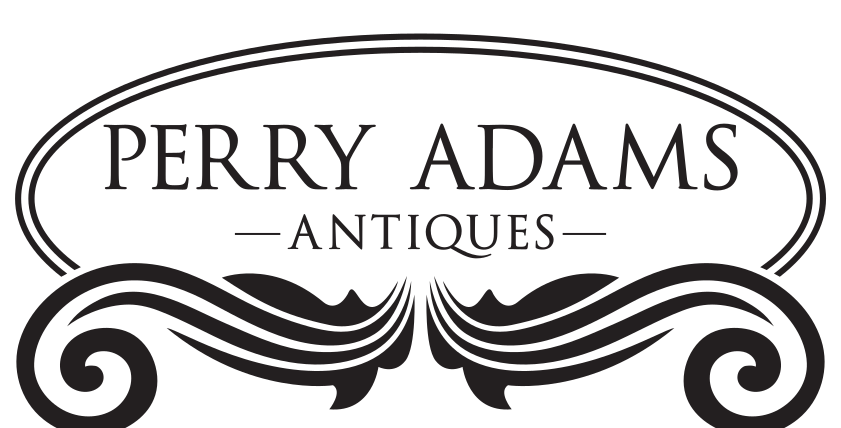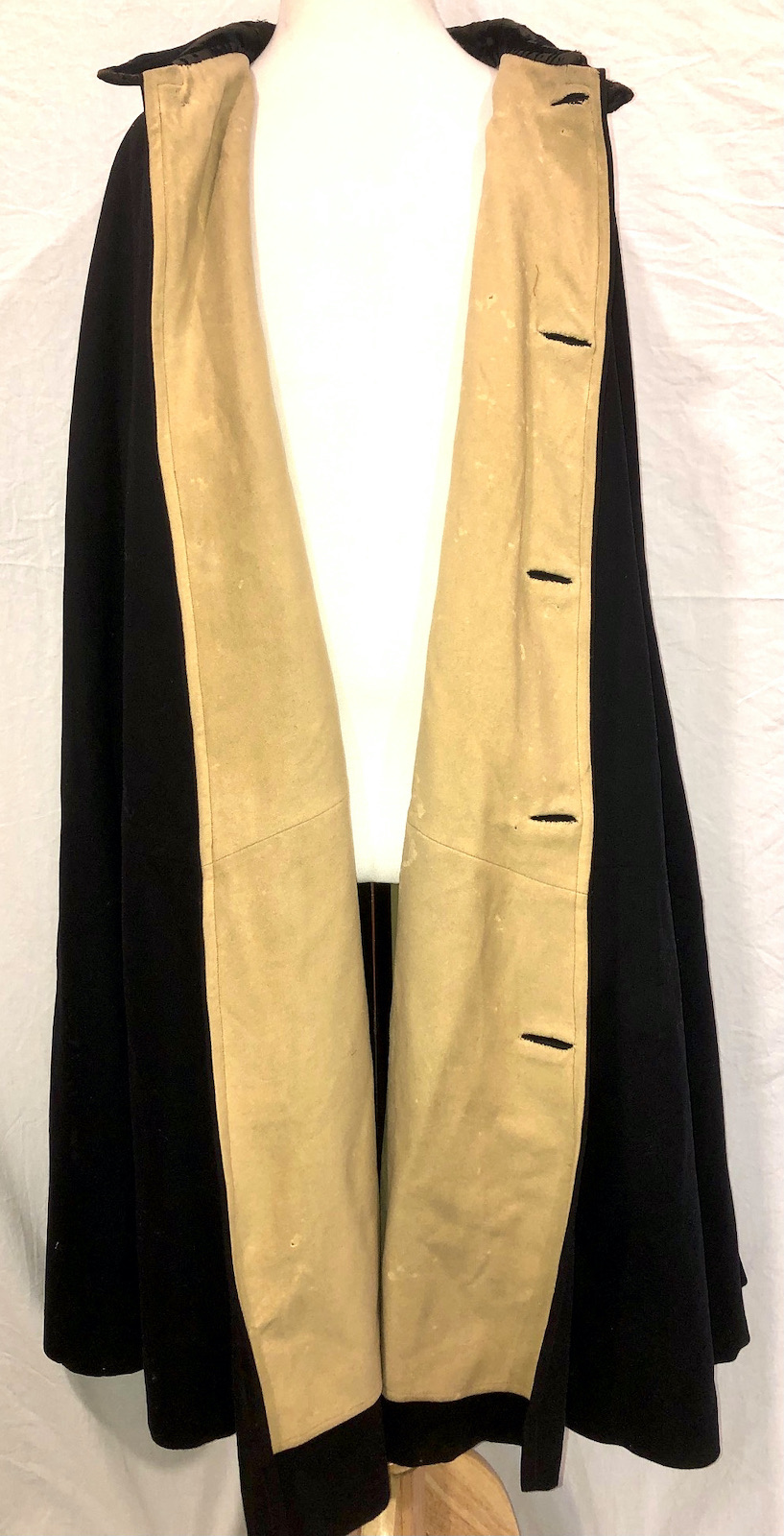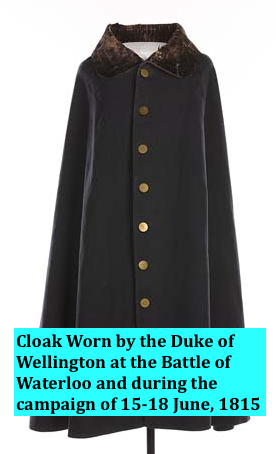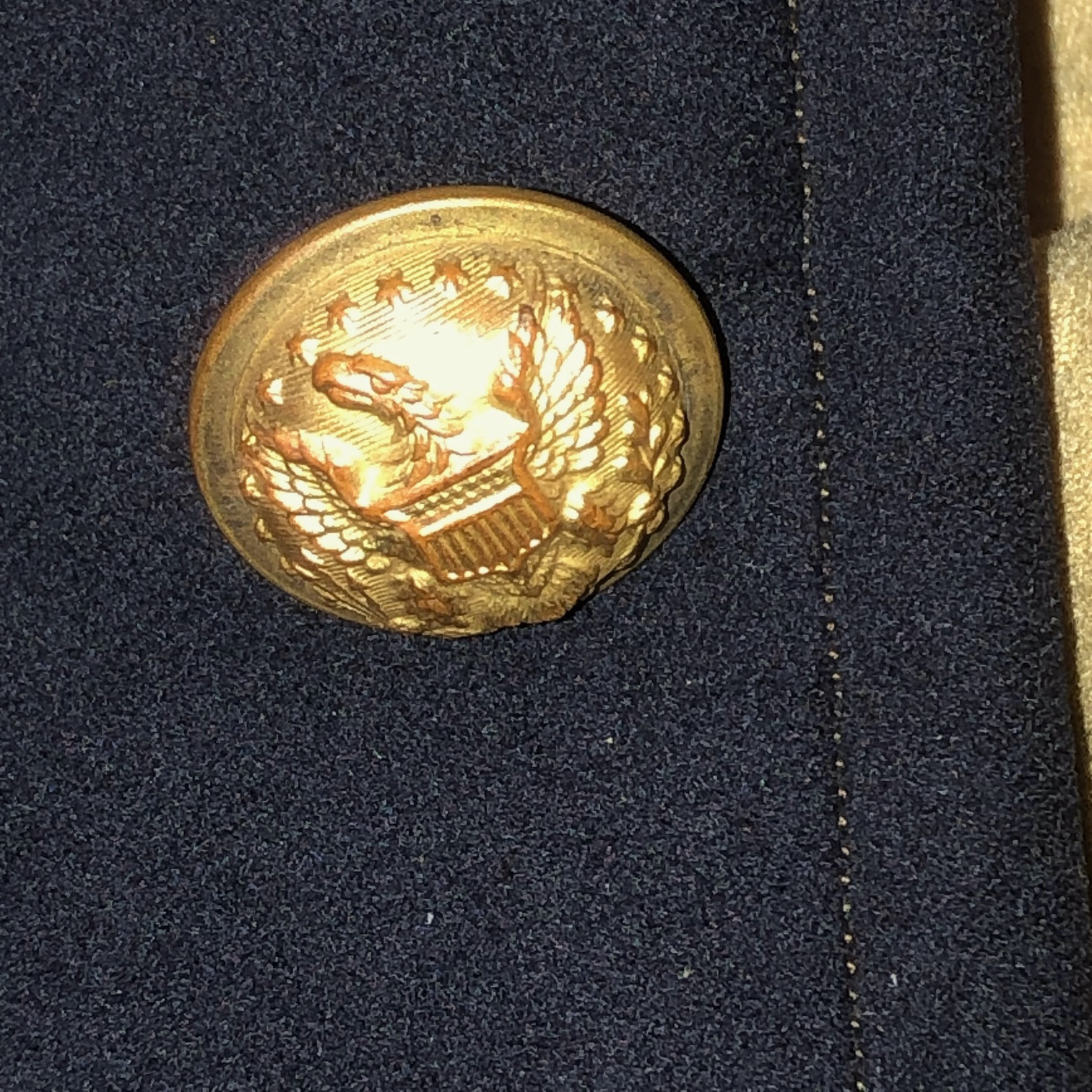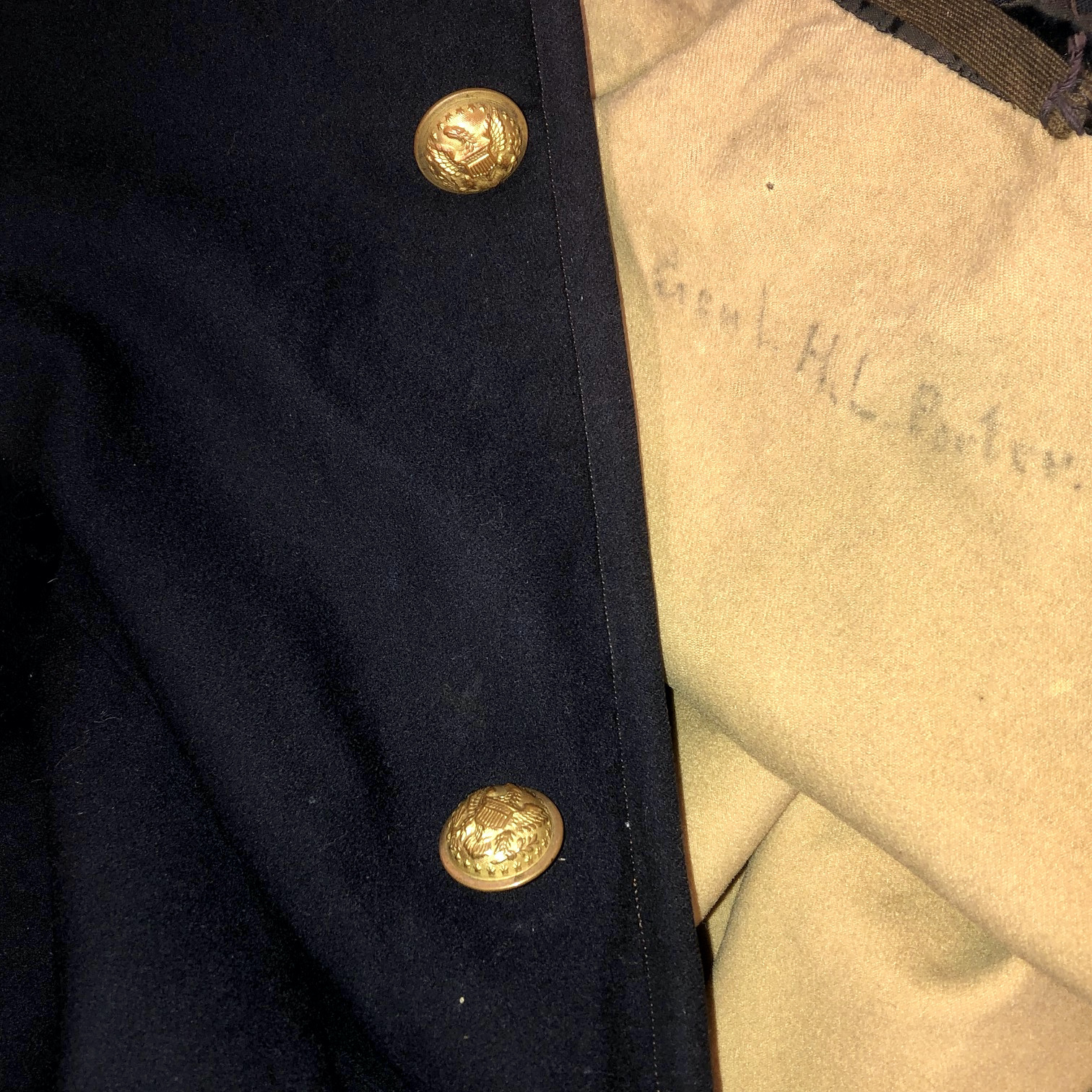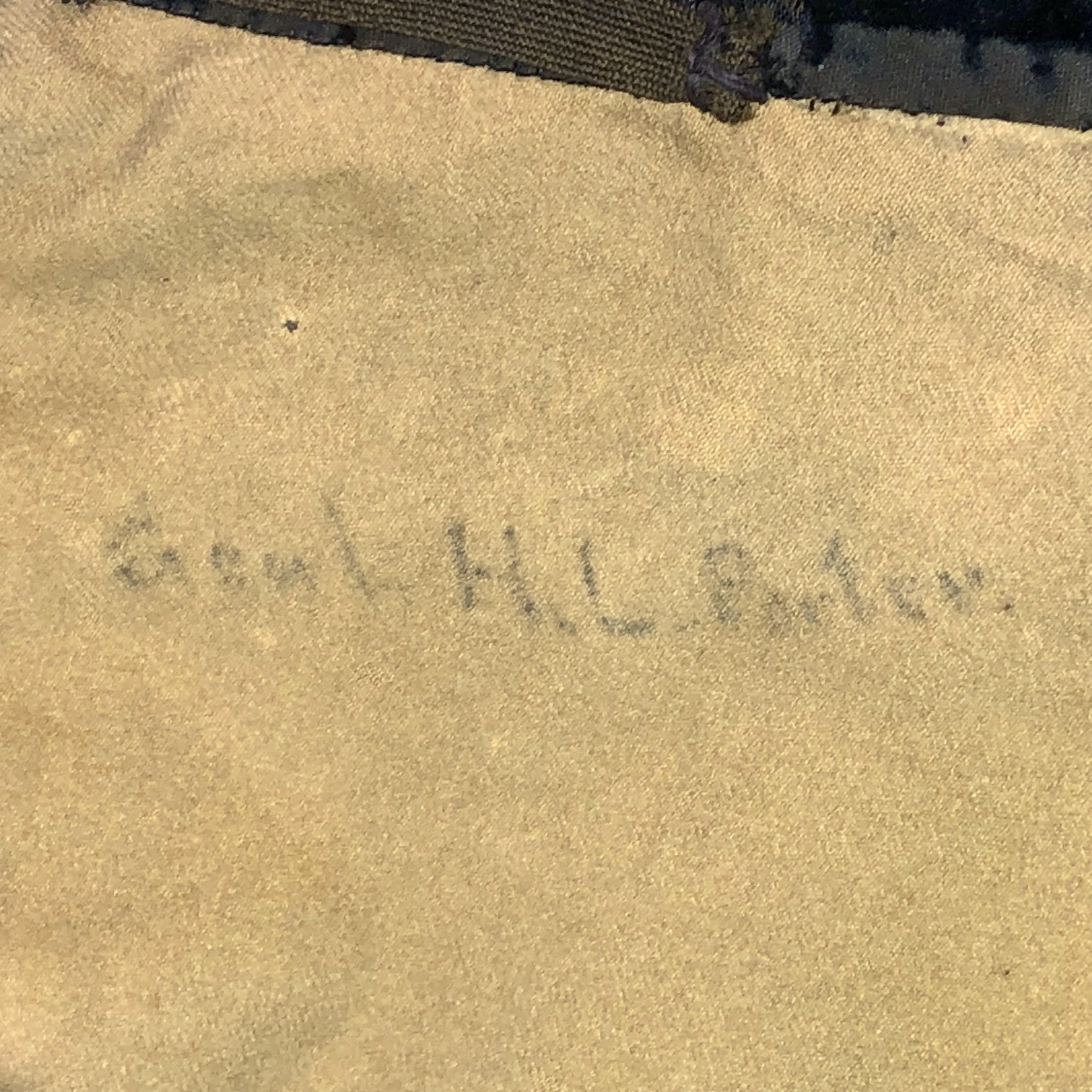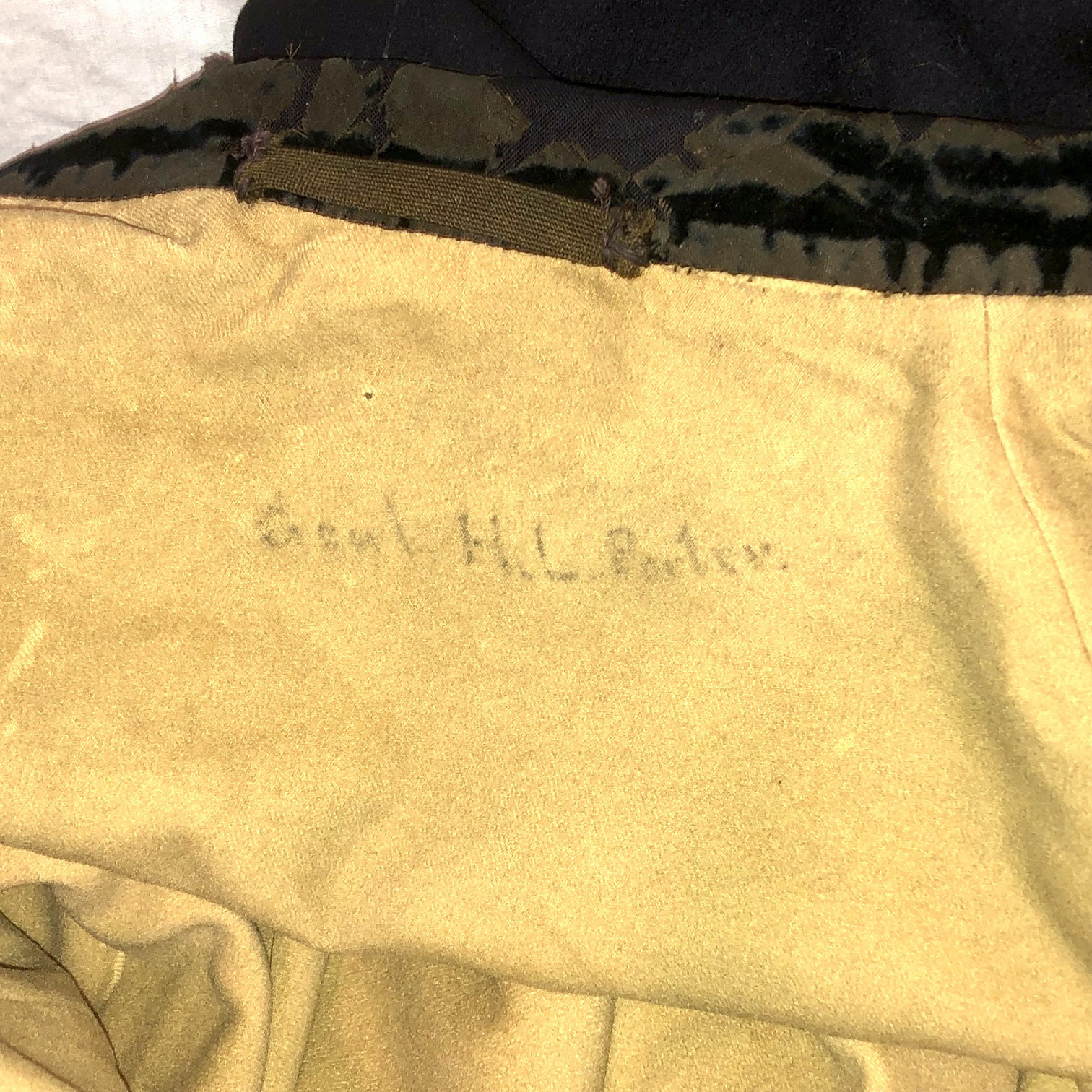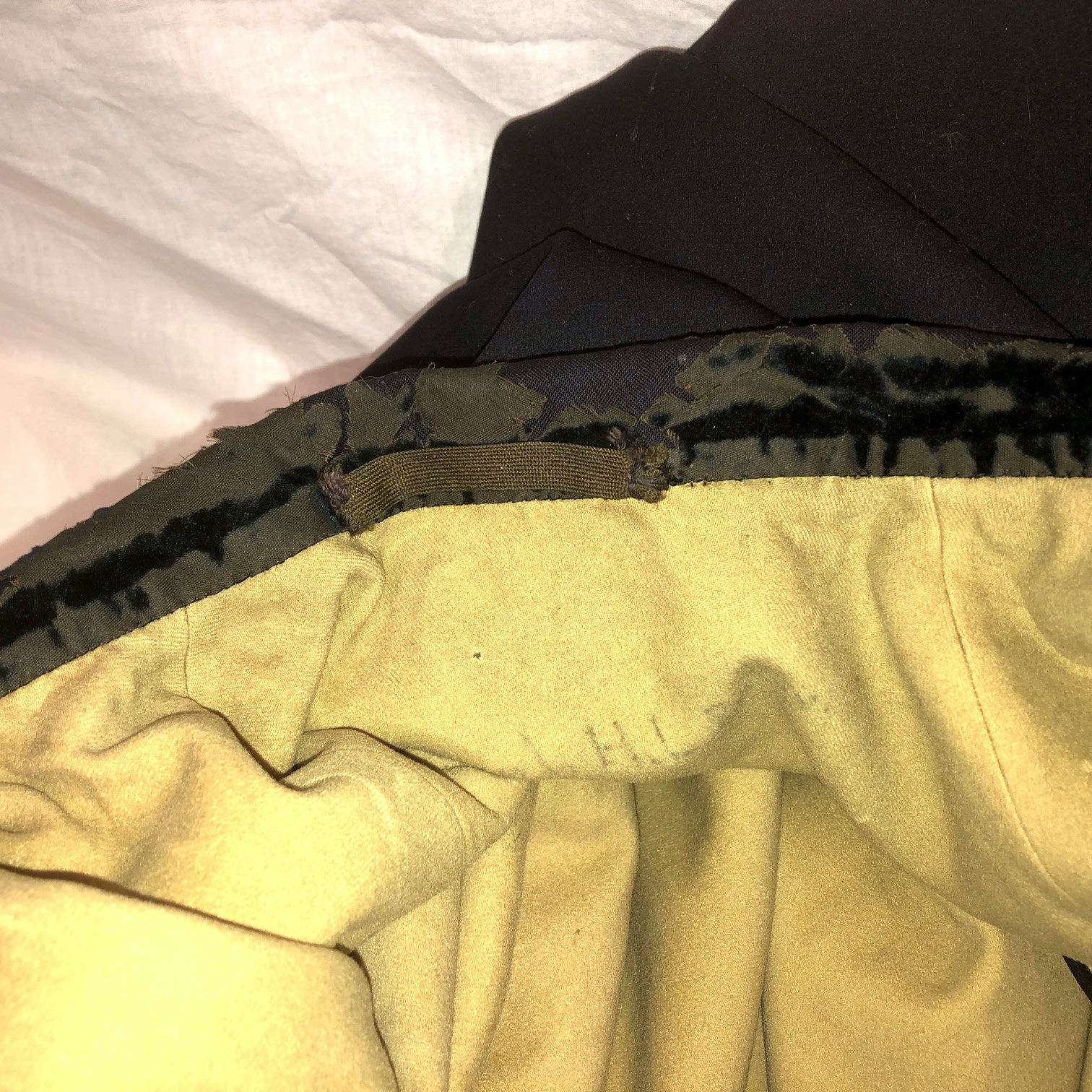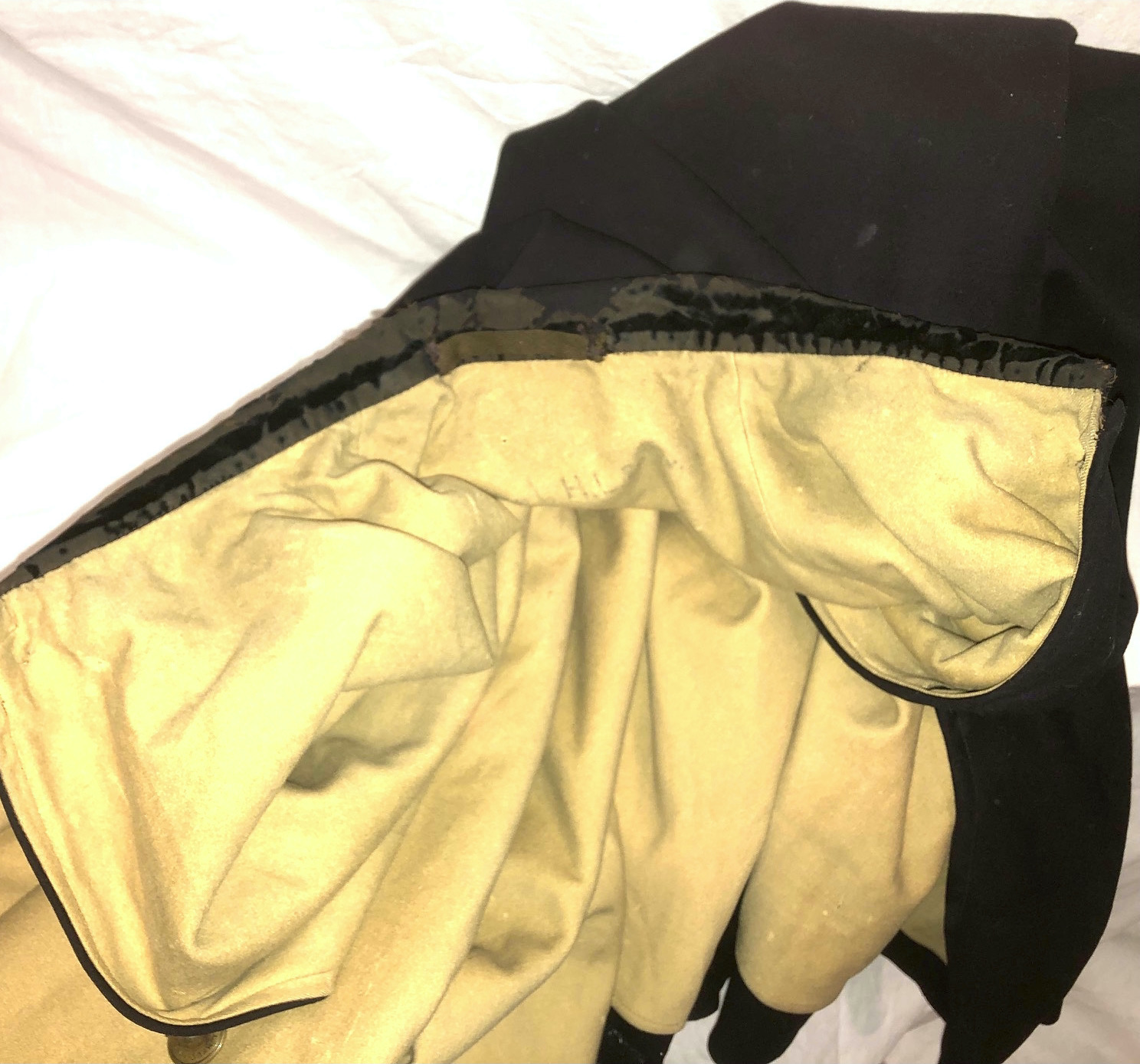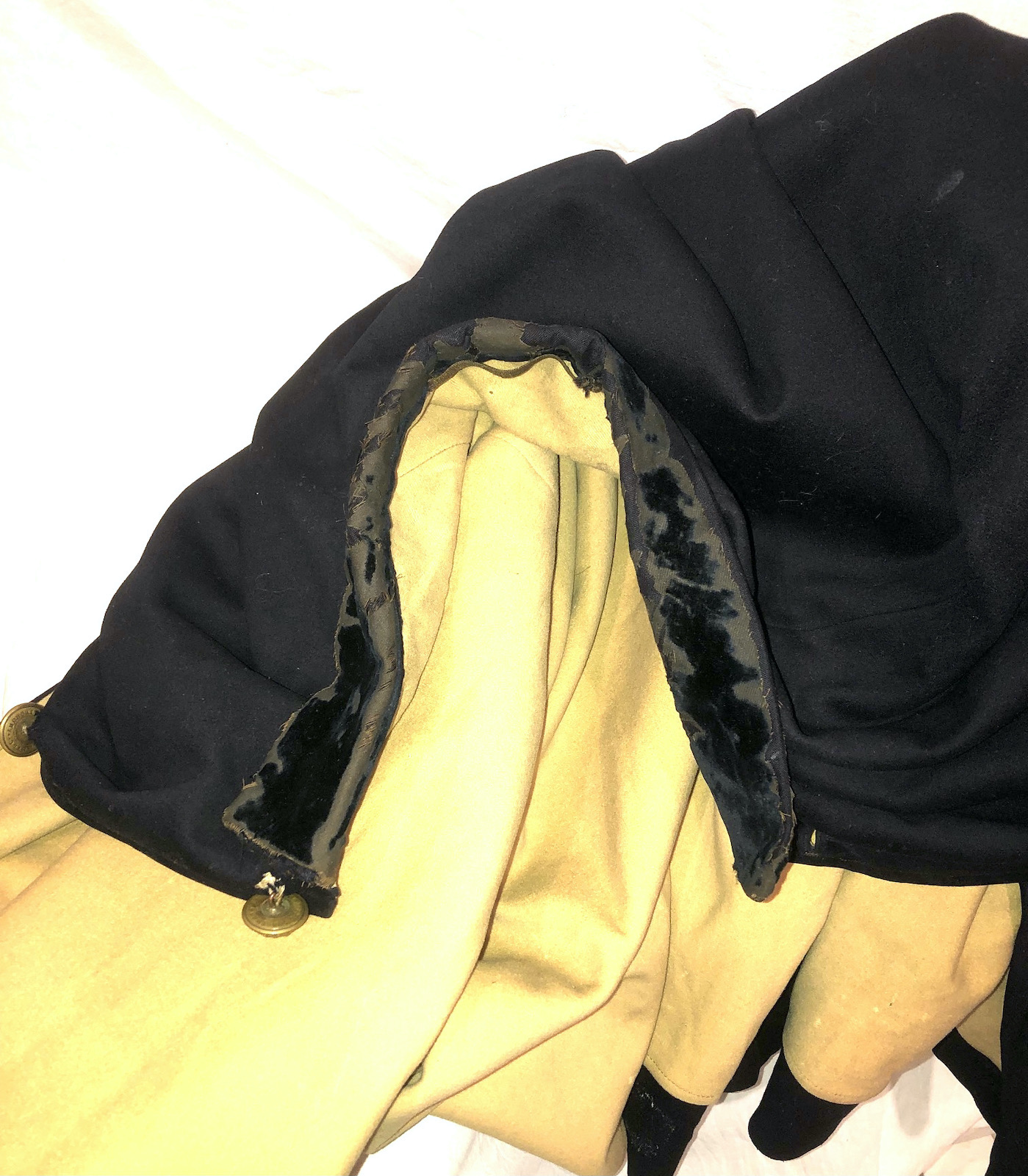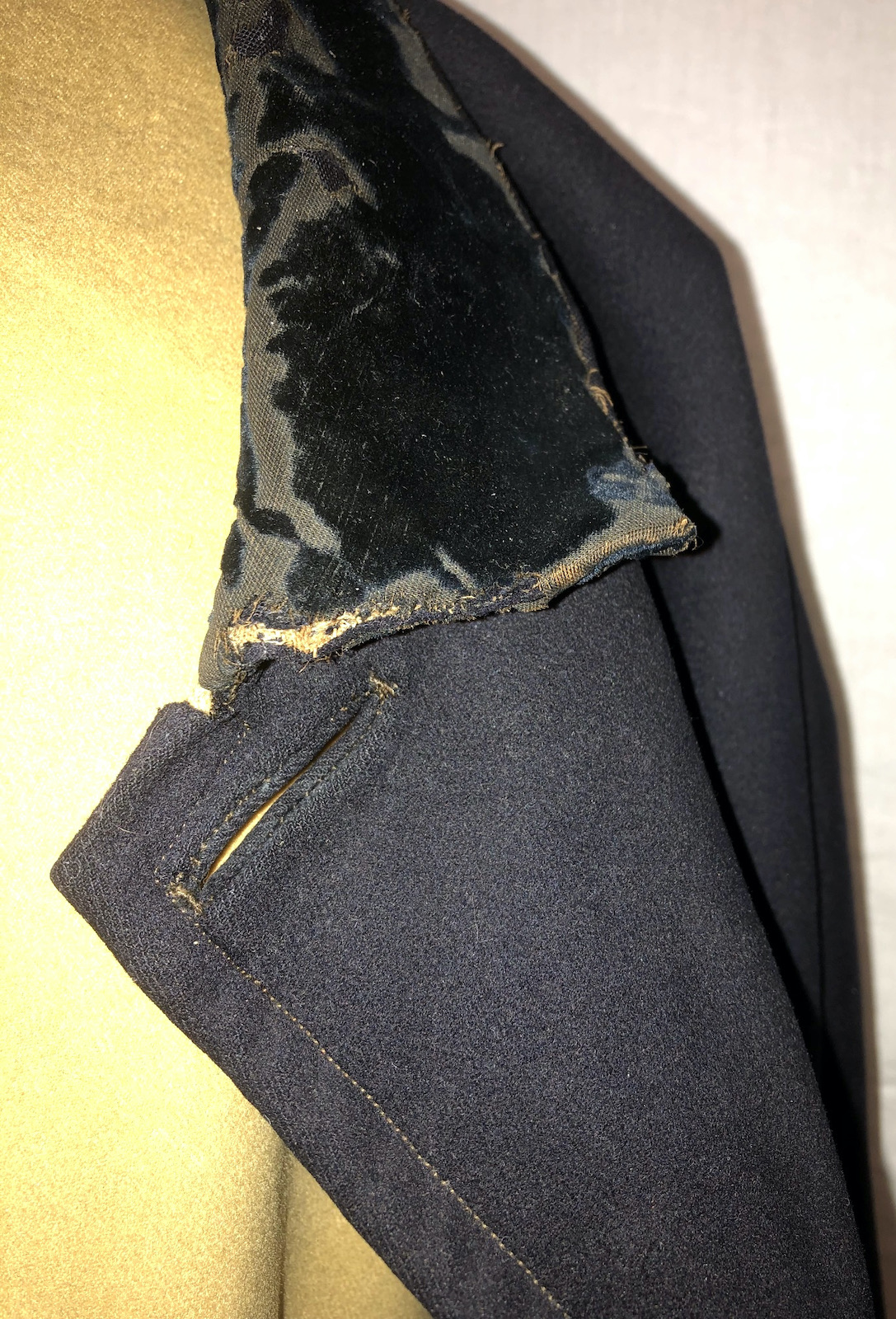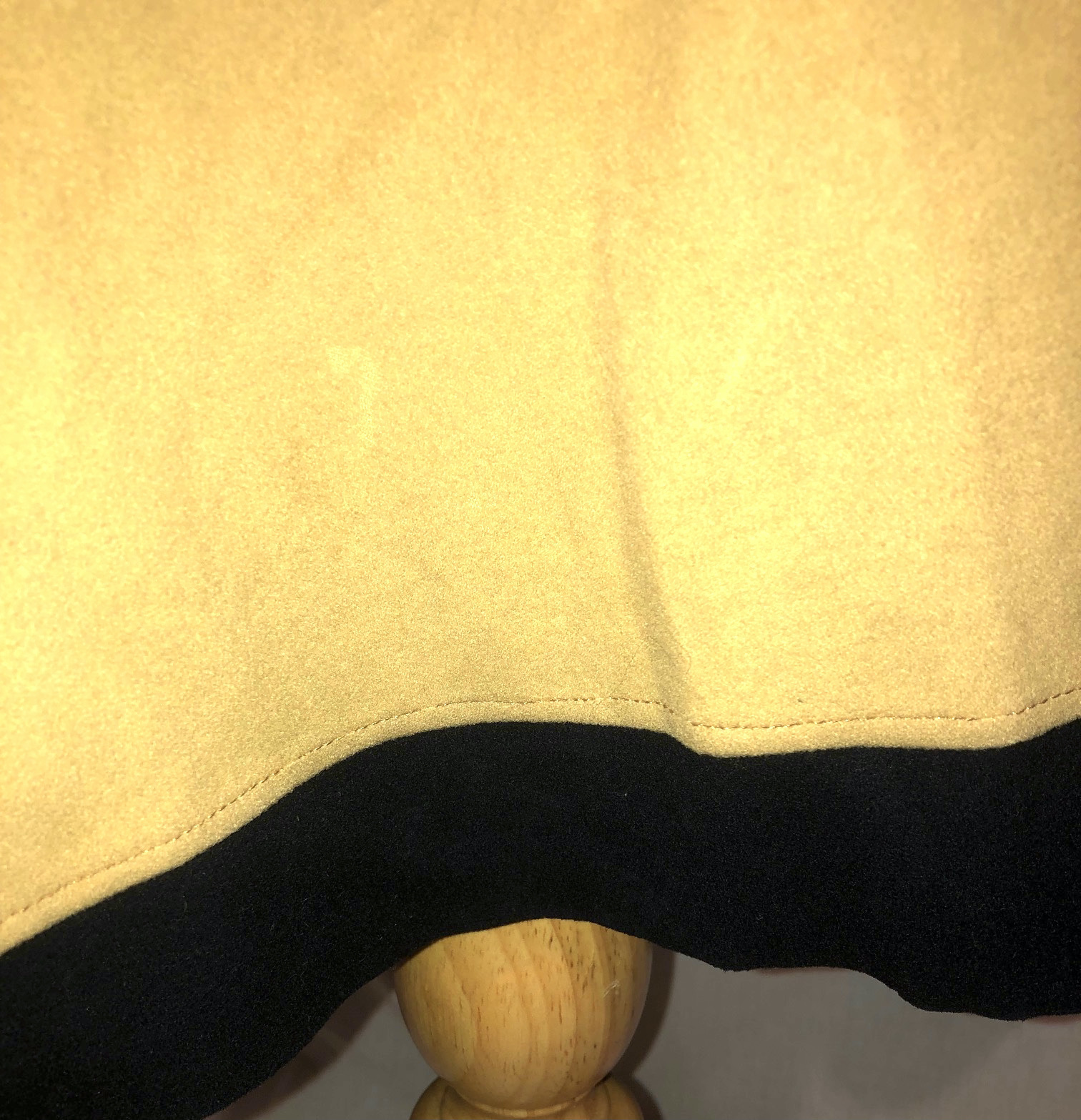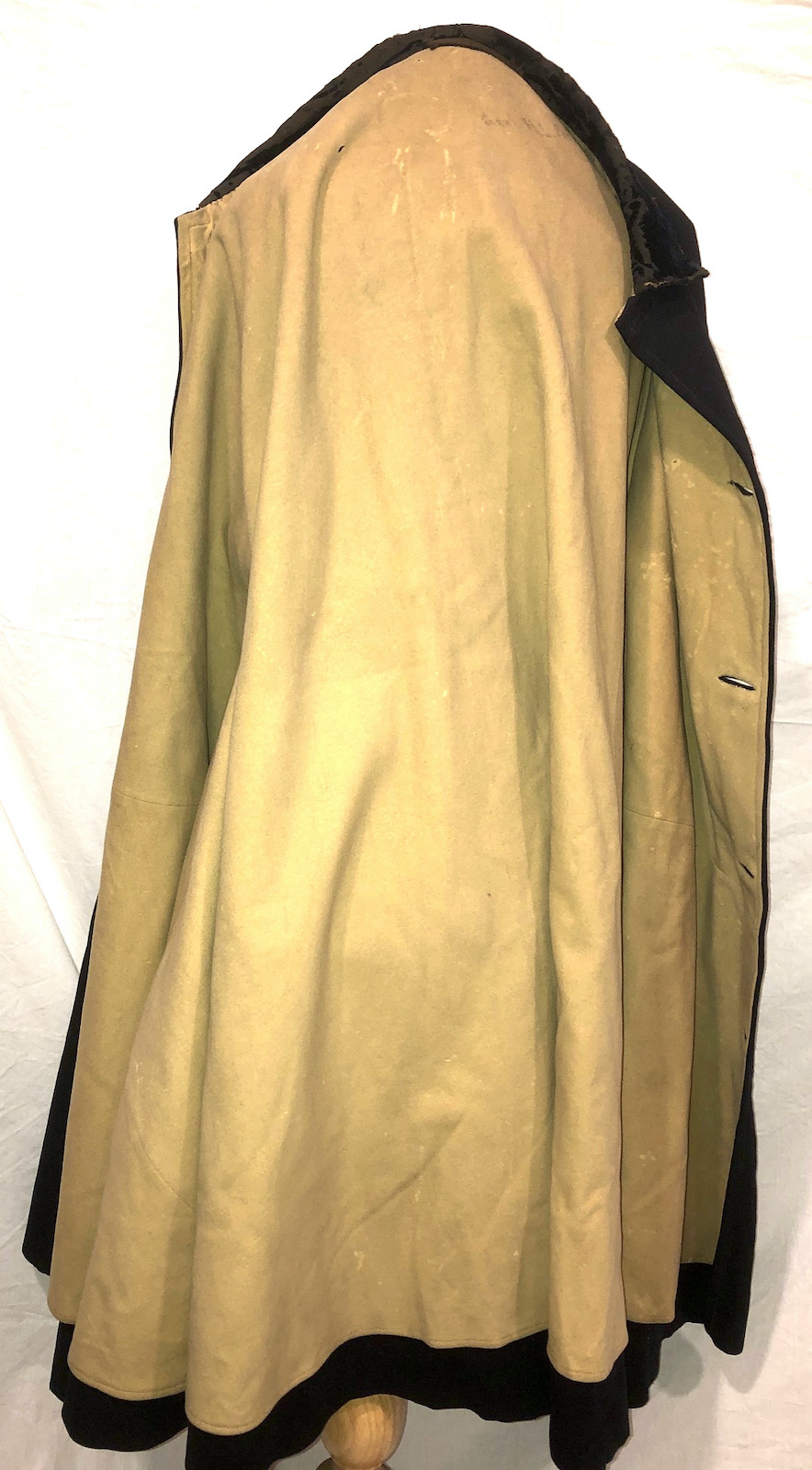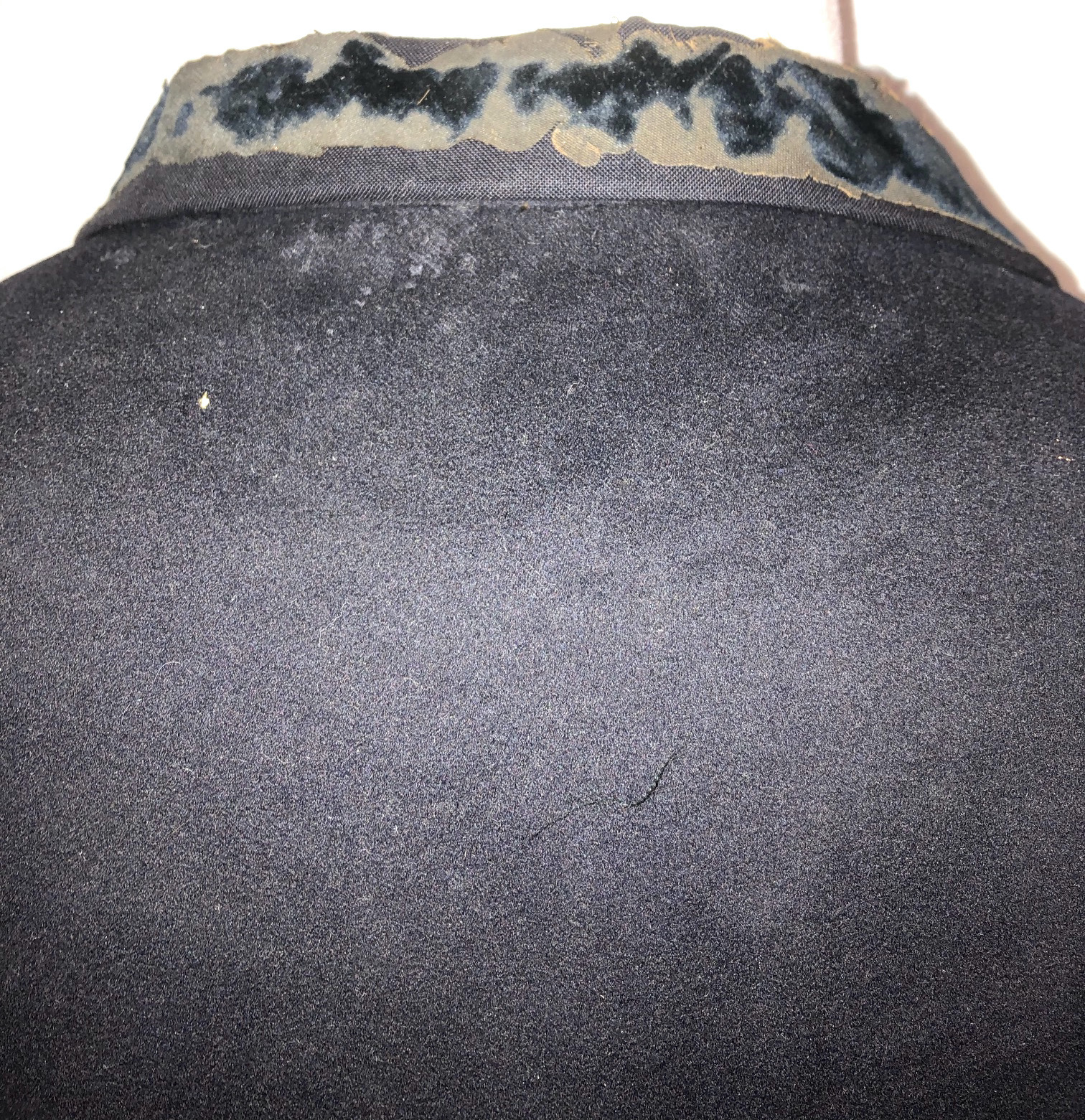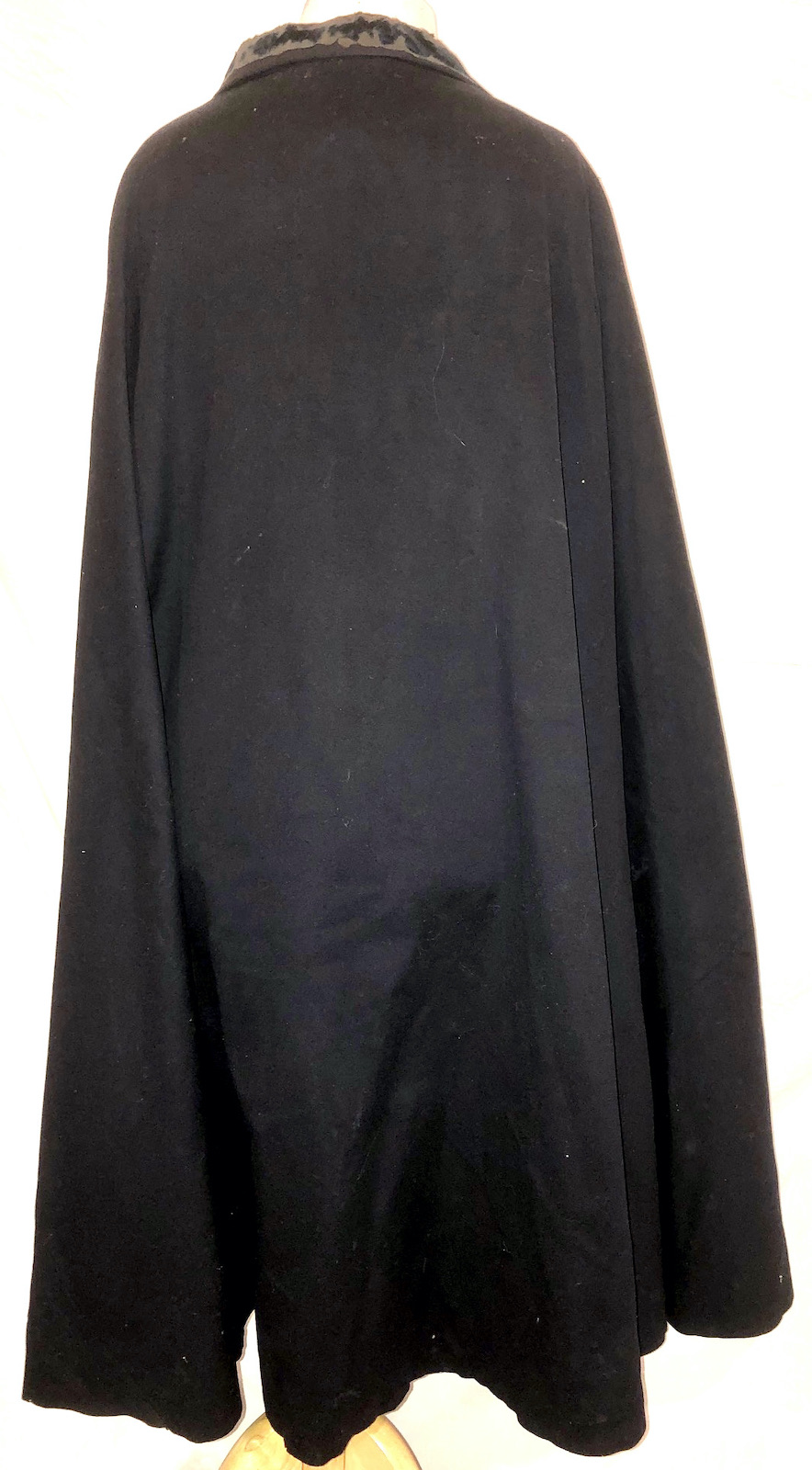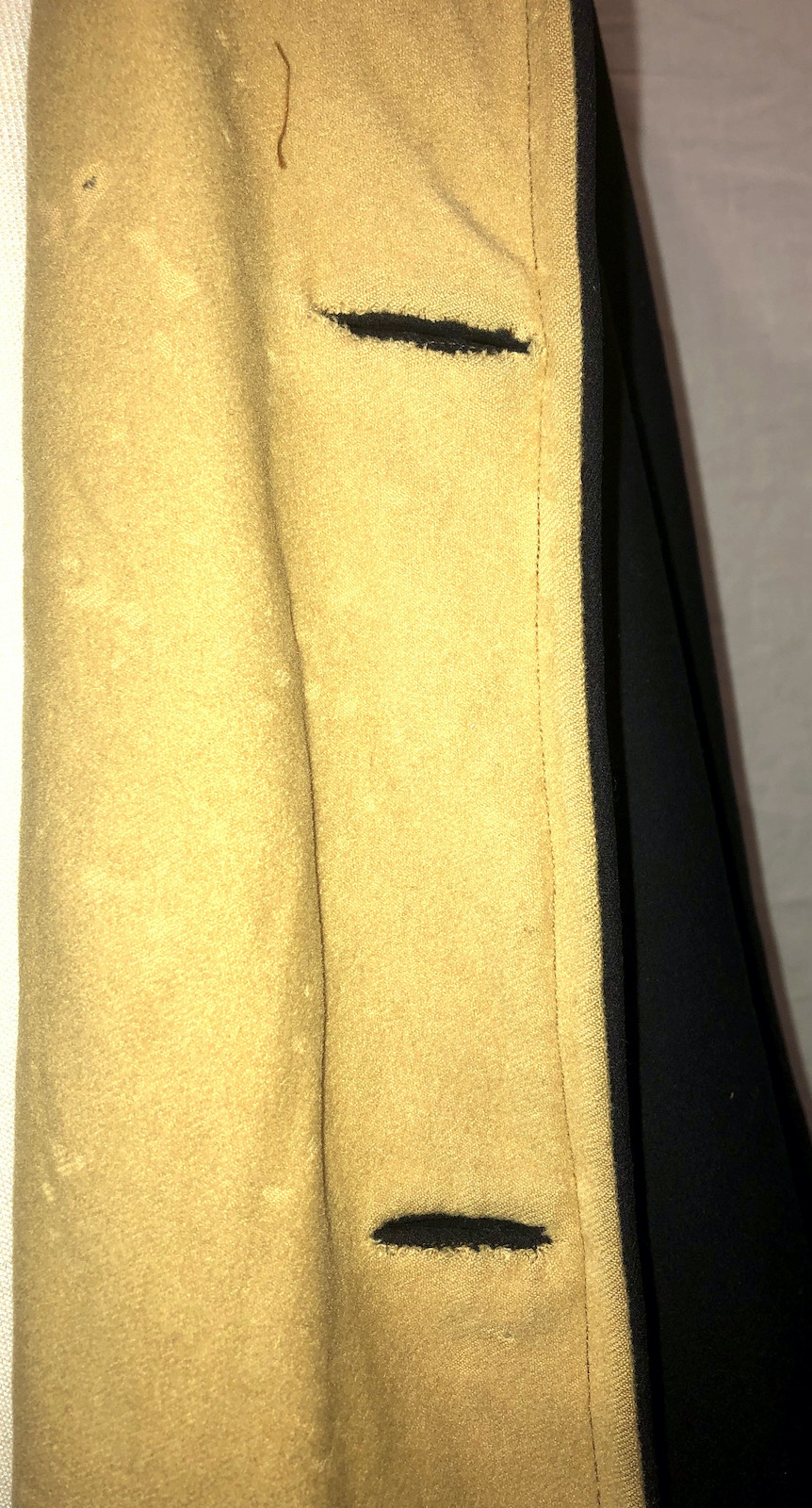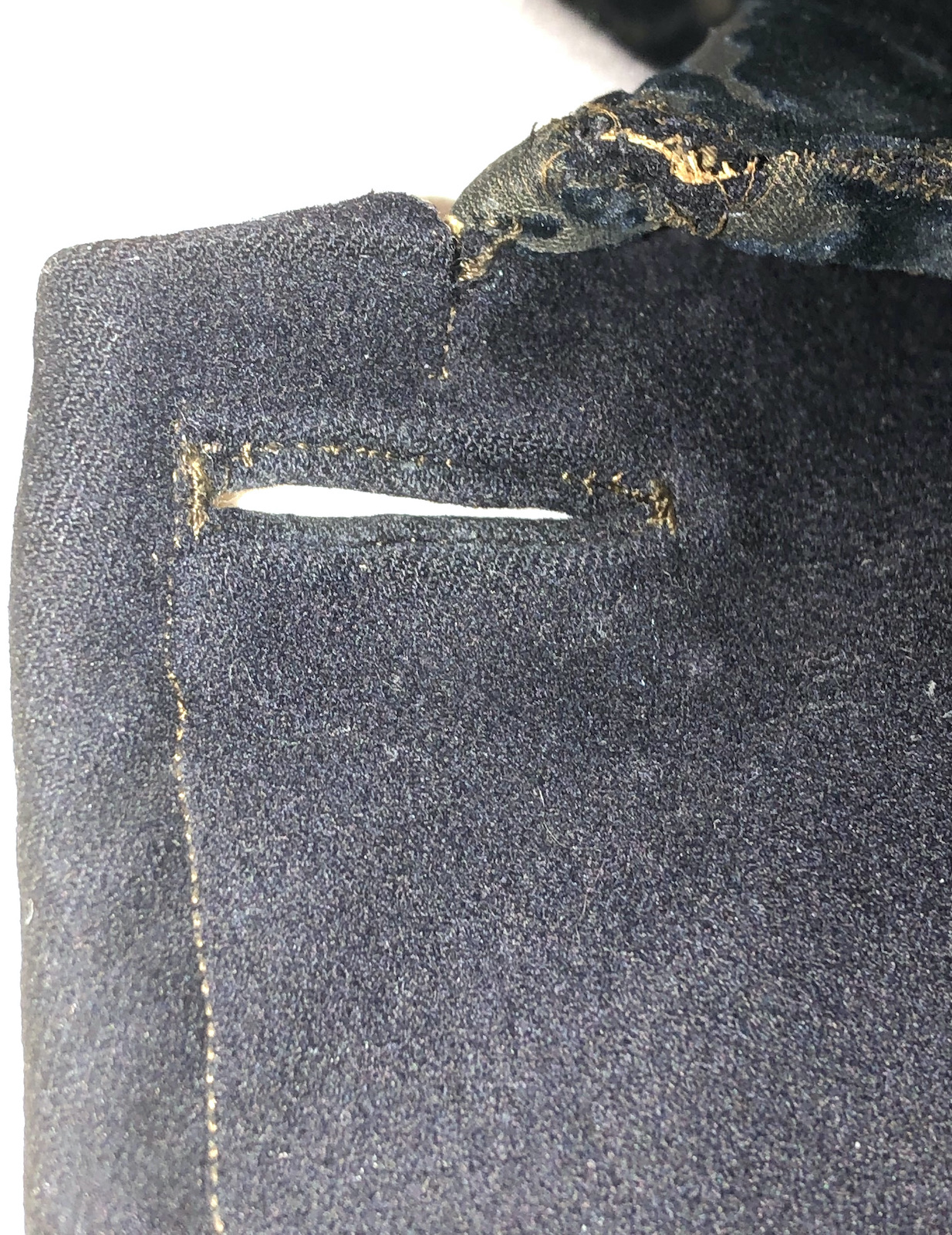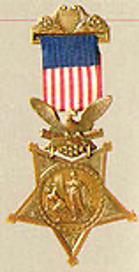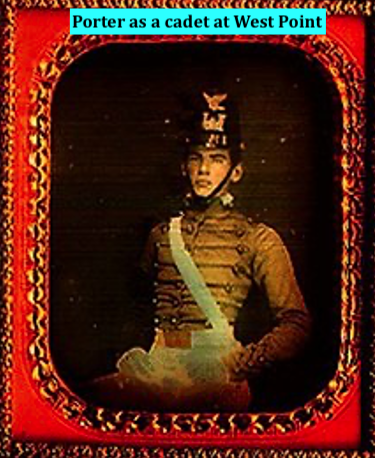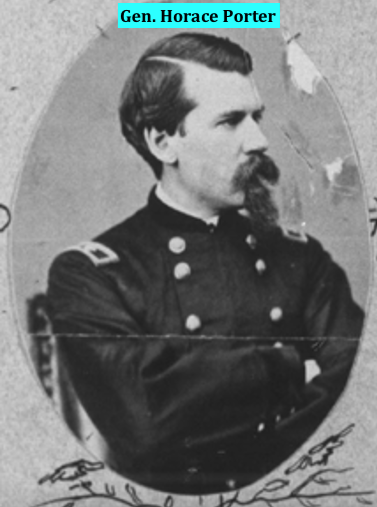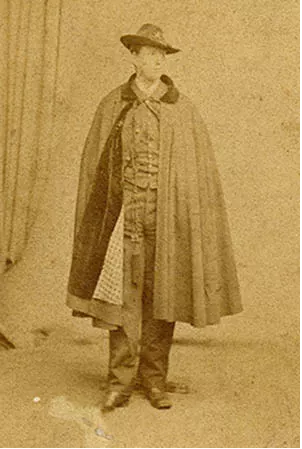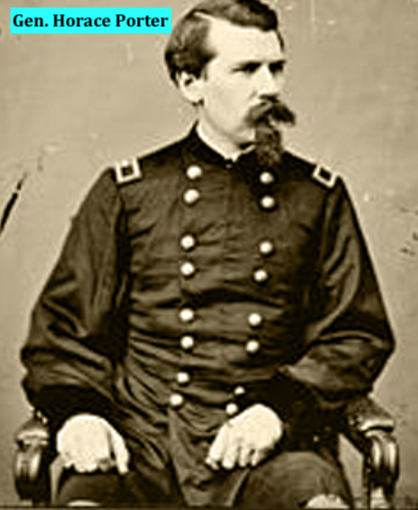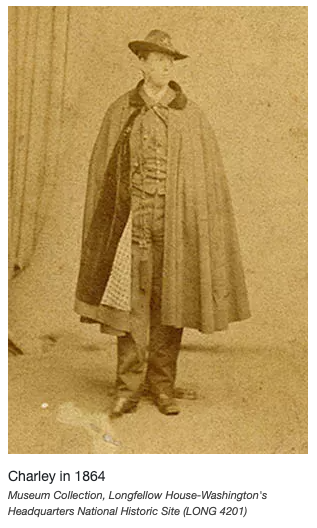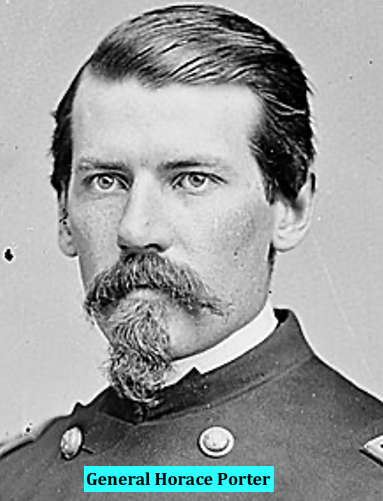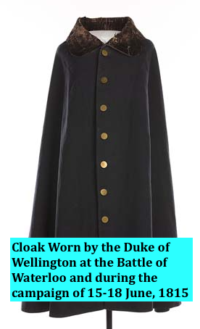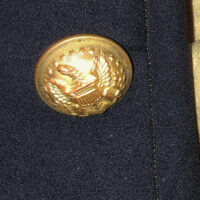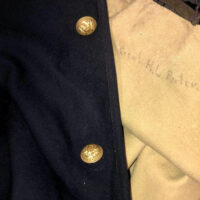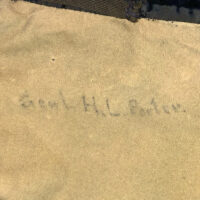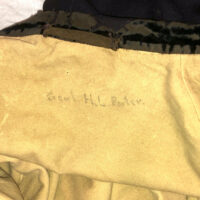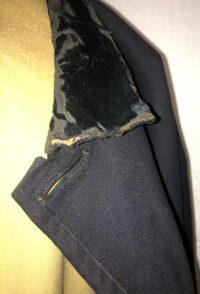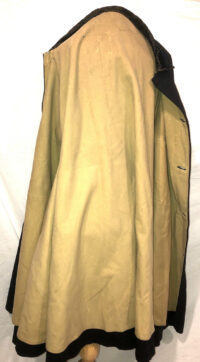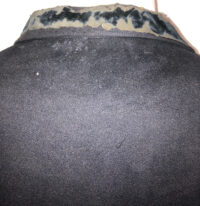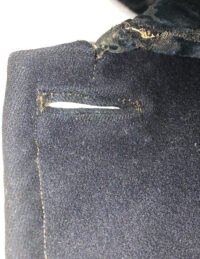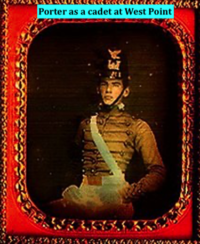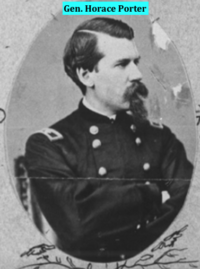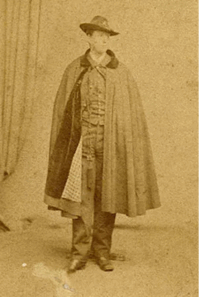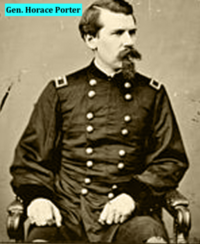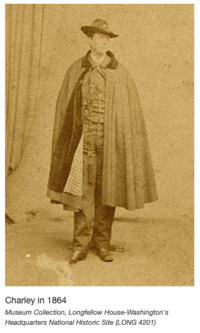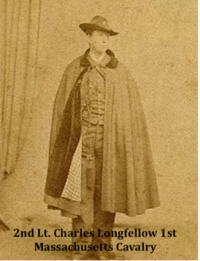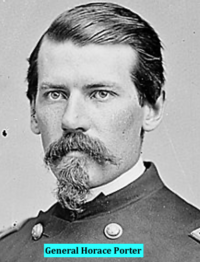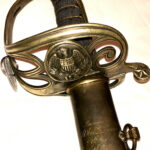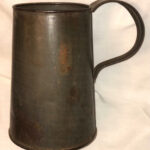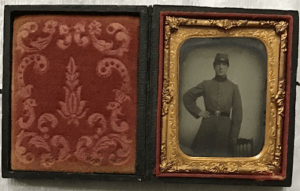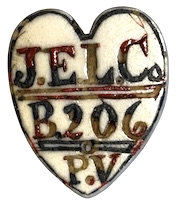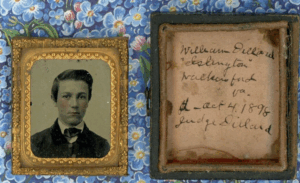Rare Civil War Officer’s Cloak Possibly Id’d to Gen. Horace Porter
$6,500
Rare Civil War Officer’s Cloak Possibly Id’d to Gen. Horace Porter – We have had war period capes, most attached to officer’s great coats; this is the first actual cloak that we have encountered. This long cloak, as opposed to a shorter cape, is approximately 36” in length, from the collar to the bottom edge of the garment. The cloak is constructed of a high quality, indigo-dyed, deep blue-colored, English, broadcloth wool; it is lined in a cream-colored wool. The cloak exhibits both treadle machine and hand work. With the exception of some minor insect nips, the cloak remains in excellent condition. The collar is covered in an officer grade, dark blue velvet – this exhibited some serious wear, so we had our textile conservator restore and repair this area. The front of the cloak is adorned with five, Civil War period, staff officer’s, coat size buttons; all of the buttonholes are hand-whipped, and the bottom hem is unbound. Of considerable interest, is the inked inscription on the interior neck area of the cloak:
“Genl H. L. Porter”
As of this posting, we are still assuming that this name may refer to General Horace Porter, Medal of Honor winner, awarded for bravery, during the Civil War. Brigadier General Horace Porter was born in Pennsylvania on April 15, 1837 and graduated from the United States Military Academy, in 1860, as a Brevet Second Lieutenant of Ordnance. Porter distinguished himself in combat several times, during the Civil War; on June 26, 1902 he was awarded the Medal of Honor for gallantry at Chickamauga, Georgia, on September 20, 1863. Porter rallied enough soldiers to hold the ground, at a critical moment, when the lines were broken under heavy fire – this period provided sufficient time to facilitate the escape of numerous wagon trains and artillery batteries. During the war, Porter was awarded five brevets for gallantry, attaining the rank of brevet brigadier general, in 1865. He was promoted lieutenant colonel and later colonel of volunteers, and later served as aide-de-camp to Generals Grant and Sherman, from 1864 to 1873. He was briefly assistant Secretary of War, in 1869; he also served as a Secretary to President Grant, from 1869 to 1873.
This cloak, in consideration of its composition and construction, is definitively a war period garment; it is certainly conceivable that Porter wore it, during the war, as he rose in the ranks, by brevet, later inking his name in the cloak, after achieving the rank of Brigadier General. This is an extremely rare, Civil War uniform piece.
Horace Porter (1837 – 1921)
| Born: 04/15/1837 in Huntingdon, PA Died: 05/29/1921 in New York City, NY USMA: 1860, class rank: 03/41 |
Promotions
| Date | To Rank | Full/Brevet | Army/Vol | Comments |
| 1st Lieut | Full | Army | Chief of Ordnance AOP | |
| 04/04/64 | Lt Colonel | Full | Army | Lt Colonel & ADC to Genl Grant |
| 03/13/65 | Brig-Gen | Brevet | Army |
Brigadier General
Horace Porter
Medal of Honor Recipient
Brigadier General Horace Porter was born in Pennsylvania on April 15, 1837 and graduated from the United States Military Academy in 1860 as a Brevet Second Lieutenant of Ordnance.
He served as Secretary to President Grant from 1869 to 1873. General Porter distinguished himself in combat several times during the War Between the States and on June 26, 1902 he was awarded the Medal of Honor for gallantry at Chickamauga, Georgia on September 20, 1863.
General Porter rallied enough soldiers to hold the ground at a critical moment when the lines were broken under heavy fire – long enough to facilitate the escape of numerous wagon trains and firing batteries. He was awarded five brevets for gallantry, and rose to the grade of brevet brigadier general in 1865.
He was promoted lieutenant colonel and later colonel of volunteers, and later served as aide-de-camp to Generals Grant and Sherman from 1864 to 1873. He was briefly assistant Secretary of War in 1869.
General Porter resigned from service on December 31, 1873 to become the Vice President of the Pullman Car Company. Following his retirement, he served for many years as a railway executive and was active in politics.
He was U.S. Ambassador to France from 1897 to 1905 and was personally responsible for locating the remains of Admiral John Paul Jones in a Paris cemetery and arranging for their return to the United States. For this service he was voted the thanks of Congress and the privileges of the floor of both houses for life. He died on May 27, 1921.
Horace Porter
Horace Porter (April 15, 1837 – May 29, 1921) was an American soldier and diplomat who served as a lieutenant colonel, ordnance officer and staff officer in the Union Army during the American Civil War, personal secretary to General and President Ulysses S. Grant. He also was secretary to General William T. Sherman, vice president of the Pullman Palace Car Company and U.S. Ambassador to France from 1897 to 1905.[1]
Early life
Porter was born in Huntingdon, Pennsylvania, on April 15, 1837,[2] the son of David Rittenhouse Porter (1788–1867), an ironmaster who later served as Governor of Pennsylvania, and Josephine McDermott.
His paternal grandfather was Andrew Porter, the Revolutionary War officer and his paternal uncles included George Bryan Porter, the Territorial Governor of Michigan, and James Madison Porter, the Secretary of War. Among his first cousins was Andrew Porter, a Mexican–American War veteran and Union Army brigadier general.[2] His aunt, Elizabeth Porter, was the grandmother of Mary Todd Lincoln.[3]
Porter was educated at The Lawrenceville School in Lawrenceville, New Jersey (class of 1856)[4] and Harvard University.[5] He graduated from West Point July 1, 1860.[2]
Career
Porter was commissioned a second lieutenant on April 22, 1861 and a first lieutenant on June 7, 1861.[2] During the American Civil War, Porter served in the Union Army, reaching the grade of lieutenant colonel by the end of the war.[2]
During the war, he served as Chief of Ordnance in the Army of the Potomac, Department of the Ohio and the Army of the Cumberland.[2] He was distinguished in the Battle of Fort Pulaski, Georgia, at the Battle of Chickamauga, the Battle of the Wilderness and the Second Battle of Ream’s Station (New Market Heights).[2] On June 26, 1902 or July 8, 1902,[6] Porter received the Medal of Honor for the Battle of Chickamauga as detailed in the citation noted below. In the last year of the war, he served on the staff of Gen. Ulysses S. Grant, later writing a lively memoir of the experience, Campaigning With Grant (1897).[2][7]
From April 4, 1864 to July 25, 1866, Porter was aide-de-camp to General Ulysses S. Grant with the grade of lieutenant colonel in the regular army.[2] On July 17, 1866, President Andrew Johnson nominated Porter for appointment as brevet brigadier general, to rank from March 13, 1866, and the U.S. Senate confirmed the appointment on July 23, 1866.[8] From July 25, 1866 to March 4, 1869, Porter was aide-de-camp to General Ulysses S. Grant with the grade of colonel in the regular army.[2]
Grant administration
Pullman’s Palace Car Co. stock certificate signed by Porter in 1884.
From 1869 to 1872, Porter served as President Grant’s personal secretary in the White House. At the same time, he held the grade of colonel and an appointment as aide-de-camp to General William T. Sherman.[2]
Porter had refused to take a $500,000 vested interest bribe from Jay Gould, a Wall Street financier, in the Black Friday gold market scam. He told Grant about Gould’s attempted bribery, thus warning Grant about Gould’s intention of cornering the gold market. However, during the Whiskey Ring trials in 1876, Treasury Solicitor Bluford Wilson claimed that Porter was involved with the scandal.[9][10] Porter testified before the committee investigating the scandal and was never formally charged with wrongdoing.[11] Porter resigned from the U.S. Army on December 31, 1873.[2]
Later life
After resigning from the Army, Porter became vice president of the Pullman Palace Car Company, and later, president of the West Shore Railroad. He was U.S. Ambassador to France from 1897 to 1905,[2] paying for the recovery of the body of John Paul Jones and sending it to the United States for re-burial. He received the Grand Cross of the Legion of Honor from the French government in 1904. In addition to Campaigning with Grant, he also wrote West Point Life (1866).[1]
Porter was president of the Union League Club of New York from 1893 to 1897. In that capacity, he was a major force in the construction of Grant’s Tomb.[1]
He was elected an honorary member of the Pennsylvania Society of the Cincinnati in 1902. He was also a member of the Military Order of the Loyal Legion of the United States, the Sons of the American Revolution and a Hereditary Companion of the Military Order of Foreign Wars by right of his descent from Lieutenant Colonel Andrew Porter who served in the American Revolution.[1]
In 1891 he joined the Empire State Society of the Sons of the American Revolution, where he served as President General from 1892 through 1896. He was assigned national membership number 4069 and state membership number 69.[12]
He died in Manhattan, New York and is interred at the Old First Methodist Church Cemetery in West Long Branch, New Jersey.[13]
Personal life
In 1863, Porter was married to Sophie King McHarg (1840–1903),[7] the daughter of John McHarg (1813–1884) and Martha Whipple Patch.[14] Together, they were the parents of:[7]
- Horace Porter Jr., who died at the age of 23 of typhoid fever.
- Clarence Porter, who died after the first World War.
- Elsie Porter, who married Edwin Mende of Berne, Switzerland.[15]
- William Porter, who died in infancy.
After a period of suffering,[15] Porter died at New York, New York, May 29, 1921.[2][1] He was buried in West Long Branch Cemetery, West Long Branch, New Jersey.[2][16] In his will, he left the Grant Association $10,000 and the flag that flew at General Grant’s field headquarters during the Civil War.[17]
Medal of Honor citation
Rank and Organization:
Captain, Ordnance Department, U.S. Army. Place and date: At Chickamauga, Ga., September 20, 1863. Entered service at: Harrisburgh, Pa. Born: April 15, 1837, Huntington, Pa. Date of issue: July 8, 1902.
Citation:
While acting as a volunteer aide, at a critical moment when the lines were broken, rallied enough fugitives to hold the ground under heavy fire long enough to effect the escape of wagon trains and batteries.[18]
